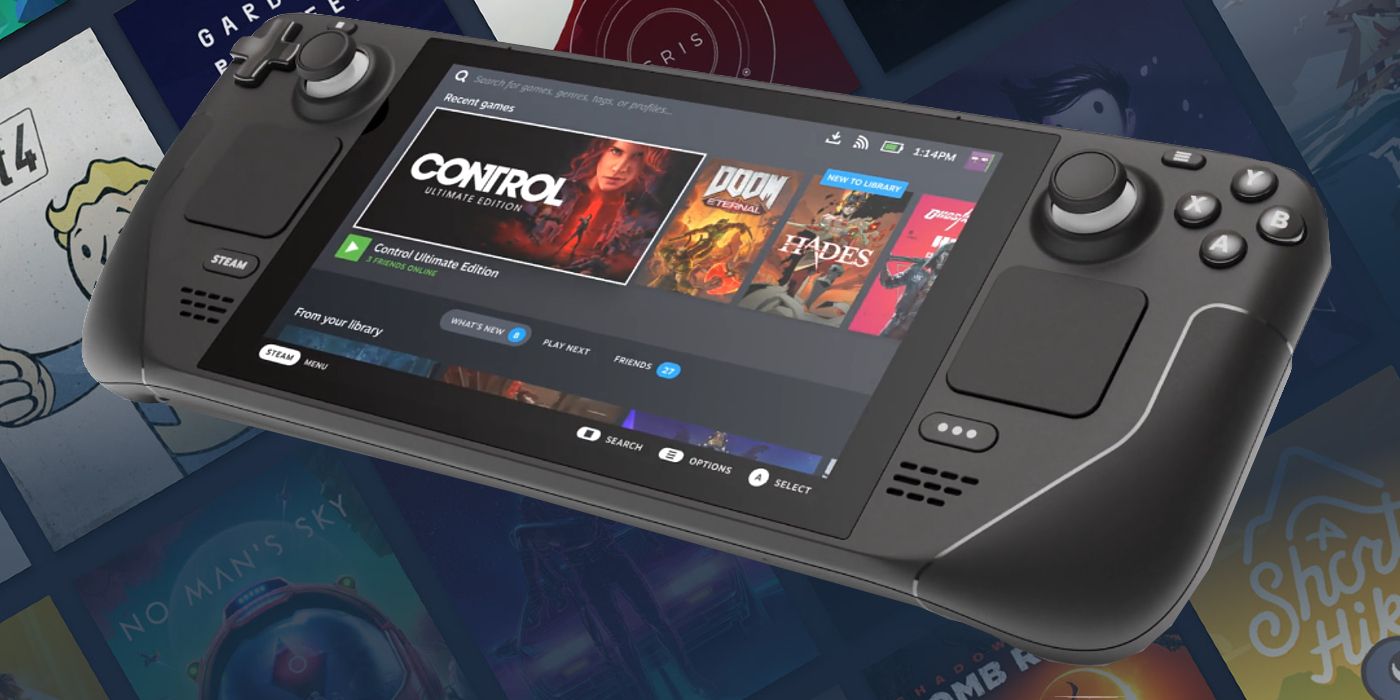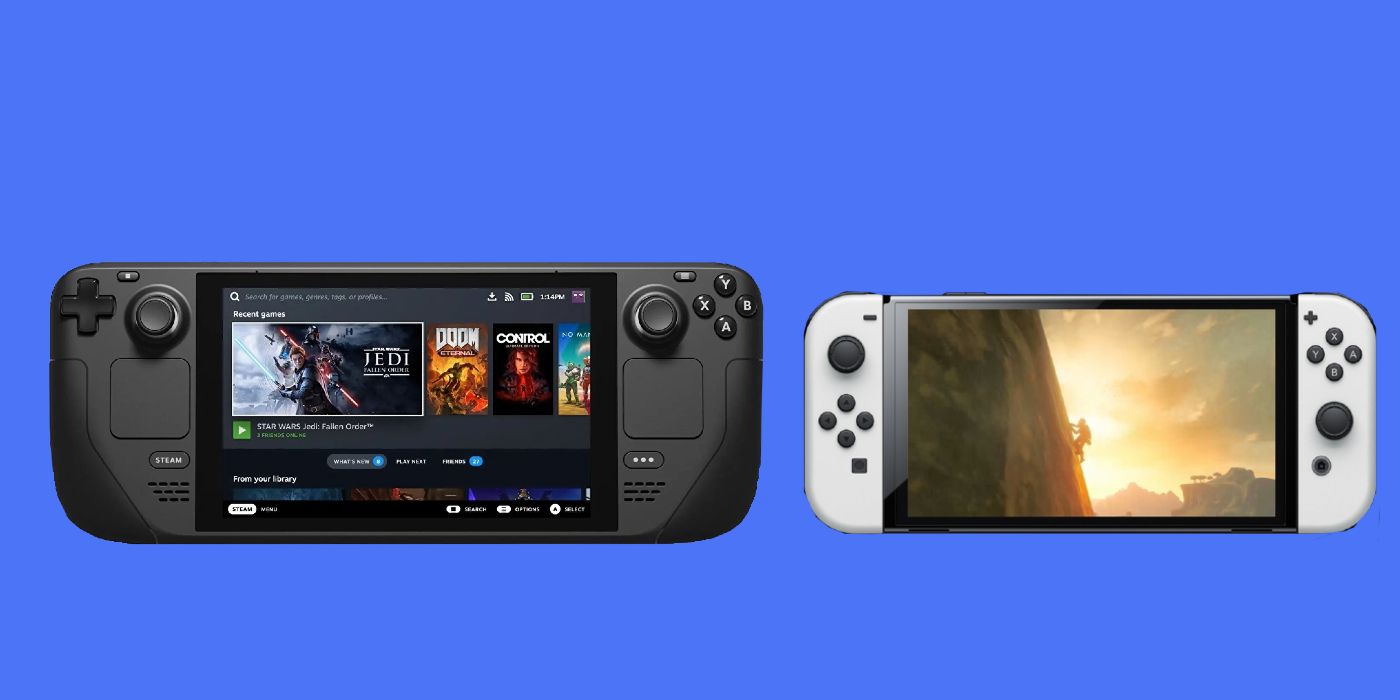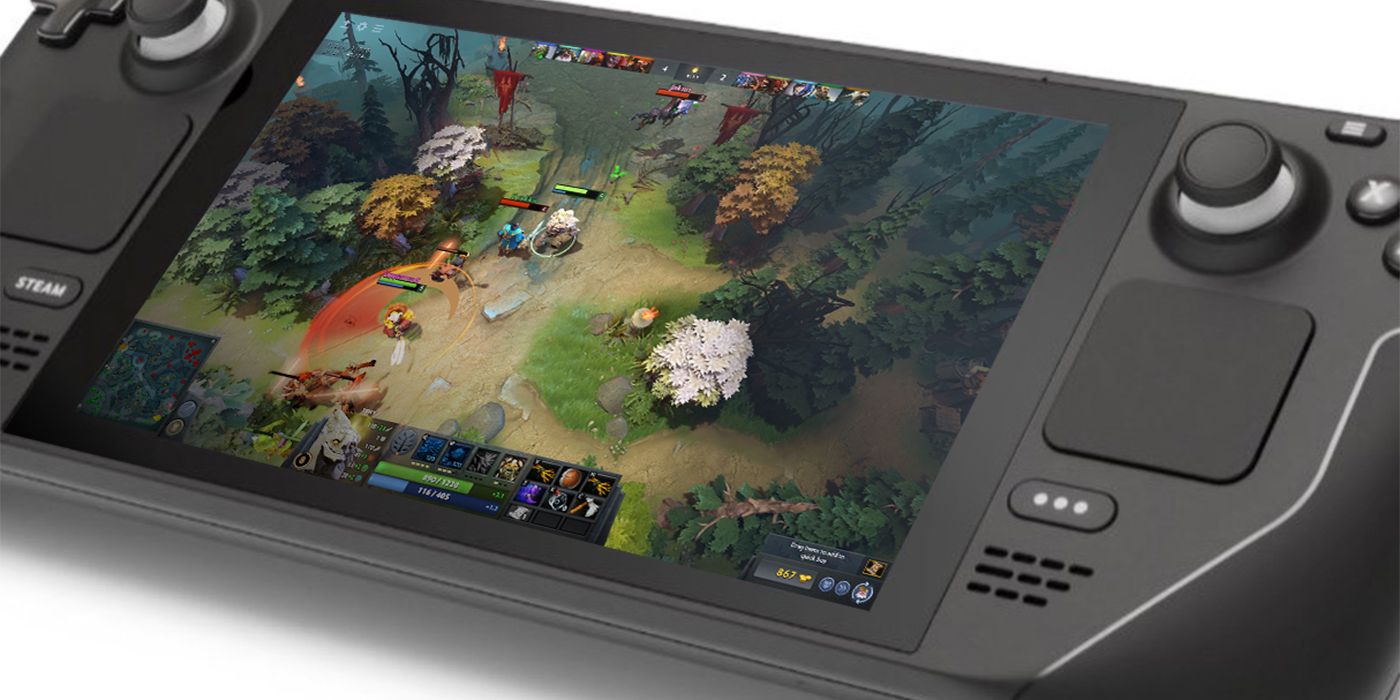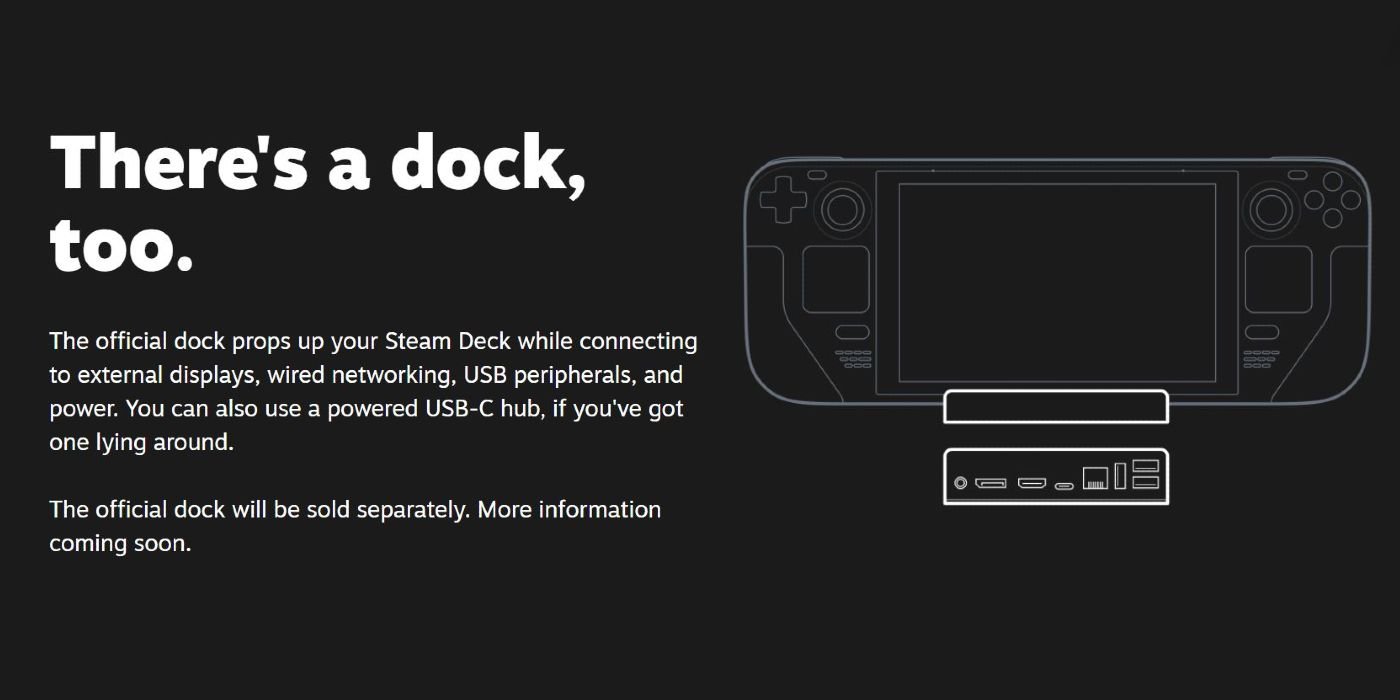
Valve has just announced its new handheld gaming console, called the Steam Deck. While the Steam Deck looks and operates in a similar fashion to other handheld consoles like the Nintendo Switch, early impressions suggest that the system is much more comparable to a portable gaming PC. While the console is intended to play games from the Steam library, the Steam Deck could theoretically be re-fashioned by savvy gamers to do just about anything a normal gaming PC can do. As such, when considering the price points of the $399/64 GB model, $529/256 GB model, and $649/512 GB model set by Valve, it's important to consider its capabilities beyond the SteamOS, since fans will inevitably take it there.
As far as specs, the Steam Deck boasts 4 cores of AMD's Zen 2 microarchitecture, and AMD's RDNA 2 GPU for a combined APU power that sits at around 1.6 teraflops. For ease of comparison, the Steam Deck's capabilities sit about in line with the PlayStation 4 and Xbox One. Still, in actual application, the Steam Deck should outperform the PlayStation 4 or Xbox One slightly, owing to the fact that it runs at a lower 720p resolution. It's also worth noting that there are no performance differences between any of the price points; instead the price reflects faster and larger storage between models, as well as an anti-glare etched glass screen at the highest point.
RELATED: Former Valve Developer Shows Off Early Half-Life Prototypes

Since it was announced, the Steam Deck has drawn inevitable comparisons to the Nintendo Switch (OLED Model). In terms of size and design, the Steam Deck and the Nintendo Switch (OLED Model) are indeed remarkably similar. They both sport a seven-inch touchscreen, but the Steam Deck will come in as the larger of the two consoles. The Steam Deck is about two inches wider and half an inch taller than the Nintendo Switch, and almost twice as heavy.
There isn't a lot of wasted space on the Steam Deck's face though, considering the sticks, directional pad, buttons, and touchpad, so the bulkiness comes as a necessary evil. The Nintendo Switch does win out easily on battery life between consoles (two to eight hours for the Steam Deck against four to nine hours for the Switch), with the Steam Deck likely utilizing even more battery due to more demanding game content.
Gabe Newell, Valve's CEO, described pricing the Steam Deck as "painful," but it appears his efforts more-or-less paid off. The base model of the Steam Deck comes out to only around $50 more expensive than the Nintendo Switch (OLED Model). For simplicity's sake, both consoles are fairly priced for the specs that consumers are getting, with the main difference between the two being their respective game libraries and the power advantage that the Steam Deck has over the Switch. However, it's important to remember that the Switch is likely going to be the more streamlined and user friendly of the two, with a whole roster of tried-and-true portable games to tap into.
RELATED: Nintendo Switch OLED is Already Being Resold for Ridiculous Prices

There's one huge aspect of the Steam Deck that's important to consider. While Steam boasts a library of over 50,000 games, none of those games have truly been designed with the Steam Deck in mind. Most PC games that are made to be played with controllers, or generally require less precision than is offered by a mouse and keyboard, will still work well.
However, that criteria alone eliminates the most popular games that currently dominate Steam's top most-played list. As it stands, CS: GO is the most popular game on Steam, followed by Dota 2, PUBG, Rust, and Apex Legends. Within that list, Rust seems like the only game where an on-the-go player will feasibly be competitive, unless they opt to use the Steam Deck like a PC and plug in a mouse and keyboard. Obviously at that point, there's not much of an argument against just purchasing a desktop PC.
This is hardly a knock against the Steam Deck. The portion of Steam's community that enjoys high-level, competitive games like Dota 2 and CS: GO probably won't get much use out of any portable system. Still, for the more laid-back, casual gamers, the Steam Deck offers basically everything they could ask for. It will be able to run award-winning indie games like Hades flawlessly, singleplayer games like Sekiro would be perfect for it, and players could even play Lawn Mowing Simulator while sitting on a riding lawnmower, if they wanted. Ultimately, it boils down to players knowing whether they'll be able to truly enjoy their favorite games on a system like the Steam Deck.

Since the difference between the three models of the Steam Deck is mostly storage size and speed, it'll likely be difficult for customers to determine which one they should buy. The two more expensive models (the 256/512 GB versions) both offer NVMe drives, meaning they'll offer faster load times in comparison to the base 64 GB model.
While all three models will allow for an SD slot to increase memory, the cost of purchasing a microSD card to span the difference in storage space, say from 64 GB to 256 GB, puts the total cost relatively close to the 256 GB Steam Deck anyways. Customers may want to just stretch for the more expensive model right off the bat since they will come equipped with aforementioned NVMe drives. The 256 GB seems to hit the sweet spot of storage, alongside the rest of the package.
Finally, there's one last consideration for would-be Steam Deck owners to make. The current prices do not include the official Steam Deck dock, meaning that the total price of the purchase, especially at the higher end, could start to get a bit out of hand. Again, the Steam Deck still seems worth it from nearly every angle, but if gamers end up purchasing the 512 GB version, with a significant MicroSD card to enhance storage, the official dock, among peripherals like a mouse, keyboard, and headset —like the Razer Barracuda X — the cost continues to climb significantly beyond the $649 entry point.
The Valve Steam Deck is due for release this holiday.

